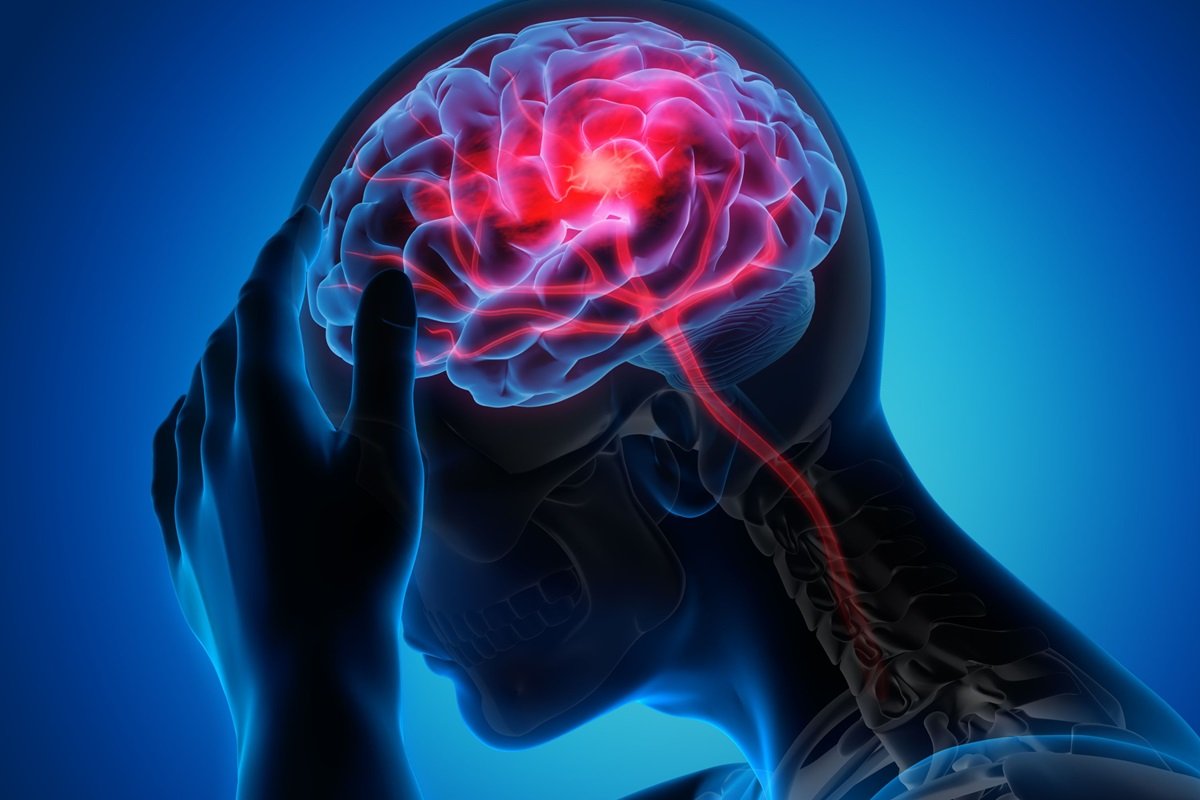Two revolutionary new ways to ease the symptoms of Alzheimer's disease (AD) have been discovered, research has found.
Electrical stimulation of the brain and light therapy might provide relief from some of the characteristic symptoms of the neurodegenerative disease, according to new papers published in the journals General Psychiatry and PLoS ONE, respectively.
These treatments may help Alzheimer's patients—which number more than 6 million in the U.S. alone—to deal with the incurable disease.

Electrical stimulation
The General Psychiatry paper reveals that two electrical stimulations of the brain daily may help to boost cognitive function and mental processes in Alzheimer's disease patients. This transcranial direct current stimulation, or tDCS, is thought to allow for the formation of new neural networks, letting the brain rewire itself by stimulating its plasticity.
The researchers investigated if tDCS could affect cognitive function in 140 patients aged 65 and over who had been experiencing mild to moderate Alzheimer's disease for at least 6 months. They applied the tDCS electrodes across the patients' heads, delivering a constant low-intensity electrical current to the brain's prefrontal cortex twice daily for five days a week, across six weeks.
The prefrontal cortex is involved in social behaviors like speech and language, as well as planning, decision-making and memory.
"The results of this study strongly indicate that tDCS treatment is a significant and promising intervention for improving cognitive function," the authors wrote in the paper. "In addition, plasticity plays a vital role in cognitive change."
The researchers found that compared with the control group, which received no electrical stimulation, the group that received the electricity had improved word recall and word recognition after only two weeks, and increased cortical plasticity after 6 weeks.
This implies that tDCS can indeed help Alzheimer's patients to regain cortical plasticity which in turn leads to cognitive improvement.
"Our research indicates for the first time that twice-a-day tDCS may improve the cognitive function of patients with AD. This study also suggests that cognitive dysfunction may be related to impaired cortical plasticity, which warrants mechanistic investigations of the relationship between cognition and plasticity in the future," the authors wrote in the paper.
Exactly how this works is still unclear to the researchers. They note that they did not carry out MRI or electroencephalography scans to investigate brain structure, nor take cerebrospinal fluid or blood samples to detect neurotransmitter changes.
"The exact mechanism of tDCS for cognitive improvement in AD is still unknown. Research has shown that tDCS may impact ion activity, neurotransmitter release and brain oscillatory activity in various brain areas. tDCS can also change the release rate of neurotransmitters by influencing the propagation of action potential or the release of vesicles," the authors wrote.
They hope to further investigate how the electrical stimulation affects the brain's plasticity, and how this relates to cognitive function.
"Further research is needed to elucidate the relationship between plasticity and cognition," the authors wrote. "The relationship between plasticity and cognition will also be studied in other diseases with cognitive impairment to demonstrate the importance and uniqueness of plasticity in cognition."
Light therapy
In the PLoS ONE paper, the researchers reveal that Alzheimer's symptoms including sleep and psycho-behavioral issues can be treated using light therapy.
The study involved a meta-analysis of 15 other trials testing how light therapy, or photobiomodulation, impacted symptoms of cognitive decline.
Photobiomodulation involves using light to stimulate the brain's suprachiasmic nucleus, which modulates sleep, and has been associated with some of the symptoms of Alzheimer's disease.
"Sleep disorders are common in AD, with 70 percent of patients experiencing sleep disruption in the early stages," the authors wrote in the paper. "The suprachiasmatic nucleus (SCN), a sleep regulator in the brain's hypothalamus, synchronizes the circadian rhythm by regulating the light-dark and sleep-wake cycles. In patients with AD, reduced light input due to reduced outdoor exposure and poor sensitivity to light stimuli owing to neuropathic damage can lead to decreased circadian rhythm stability. Additionally, reduced social interaction and age-related eye defects (e.g., macular degeneration and cataracts) may also affect light transmission in the eyes, leading to circadian rhythm and sleep disorders."
The researchers performed the first systematic evaluation of the efficacy and safety of photobiomodulation, finding that the light therapy significantly improved sleep efficiency and circadian rhythm strength, as well as reducing depression and patient agitation.
"Light therapy significantly improved sleep and psychobehavioral symptoms in patients with AD. These findings combined with its low side effects suggest the role of light therapy as a promising treatment for AD," the the authors wrote. "Although light therapy has fewer side effects than pharmacological treatment, adverse behavioral outcomes in patients due to bright light exposure should be considered.
"Nevertheless, further studies with appropriately larger sample sizes are necessitated to elucidate the effectiveness of light therapy in treating sleep disorders and psychobehavioral symptoms in patients with AD."
Do you have a tip on a science story that Newsweek should be covering? Do you have a question about Alzheimer's? Let us know via science@newsweek.com.
Uncommon Knowledge
Newsweek is committed to challenging conventional wisdom and finding connections in the search for common ground.
Newsweek is committed to challenging conventional wisdom and finding connections in the search for common ground.
About the writer
Jess Thomson is a Newsweek Science Reporter based in London UK. Her focus is reporting on science, technology and healthcare. ... Read more
To read how Newsweek uses AI as a newsroom tool, Click here.





